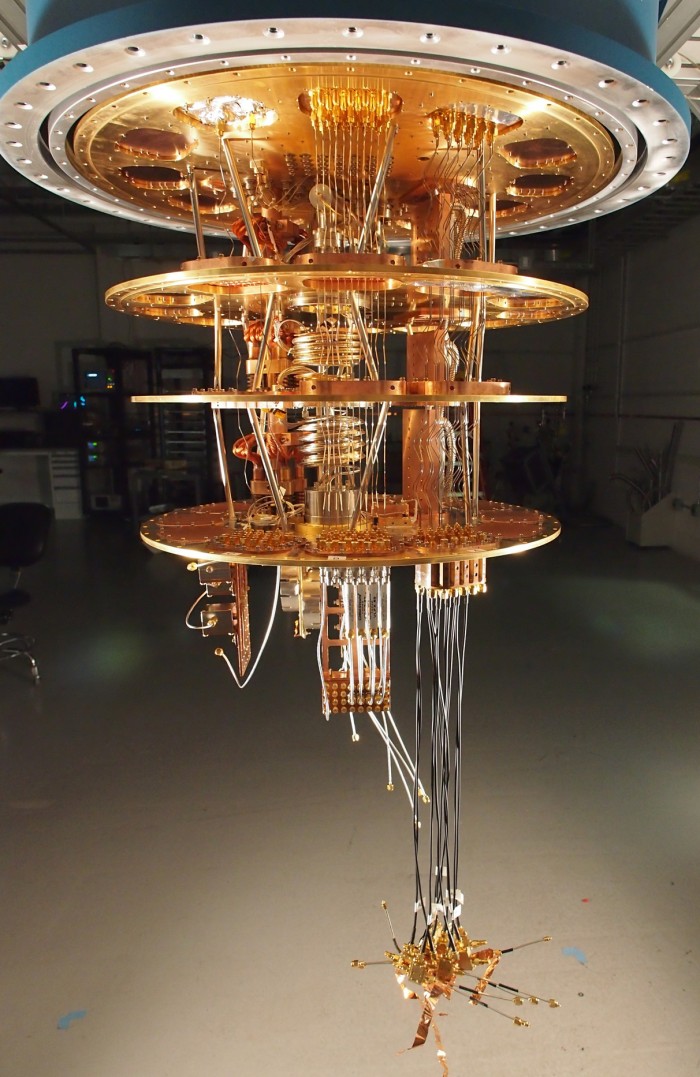Google’s Quantum Dream May Be Just Around the Corner
Researchers at Google may unveil a truly powerful quantum computer by the end of next year.
While Google itself remains tight-lipped on timings, New Scientist reports that many researchers in the field reckon its team isn’t far from completing perhaps the most advanced quantum device the world has seen. “It’s Google’s to lose,” Simon Devitt, from the Riken Center for Emergent Matter Science in Japan, told the magazine.
The new report confirms what we reported last year after visiting Google’s hardware lab.

It’s no secret that Google is striving to build a quantum computer that can outperform conventional computers—a concept known as quantum supremacy. Having tested—with no small amount of controversy—D-Wave’s quantum computers, the company hired acclaimed physicist John Martinis in 2014 to build its own quantum chips. More recently, it published results which suggested that a powerful quantum computer might be easier to build than was previously thought.
Several scientists familiar with Google’s progress, including Devitt, suggest that a functioning 50-qubit quantum chip, enough to overpower conventional supercomputers at a certain kind of calculation, could be ready by as soon as the end of 2017.
Demonstrating quantum supremacy would mark an inflection point in the history of computing technology. The first machines would be unlikely to be of much practical use, but they would almost certainly trigger a huge amount of investment in developing quantum computers that could blow away today’s supercomputers in almost every type of calculation imaginable.
(Read more: New Scientist, “Google’s Quantum Dream Machine,” “Google Reports Progress on a Shortcut to Quantum Supremacy”)
Keep Reading
Most Popular
Large language models can do jaw-dropping things. But nobody knows exactly why.
And that's a problem. Figuring it out is one of the biggest scientific puzzles of our time and a crucial step towards controlling more powerful future models.
How scientists traced a mysterious covid case back to six toilets
When wastewater surveillance turns into a hunt for a single infected individual, the ethics get tricky.
The problem with plug-in hybrids? Their drivers.
Plug-in hybrids are often sold as a transition to EVs, but new data from Europe shows we’re still underestimating the emissions they produce.
Stay connected
Get the latest updates from
MIT Technology Review
Discover special offers, top stories, upcoming events, and more.